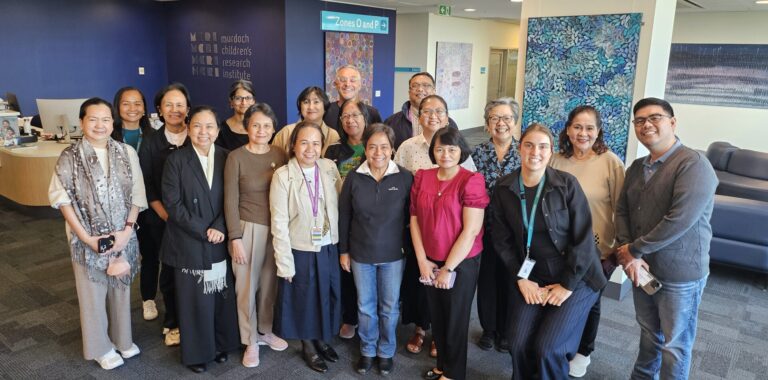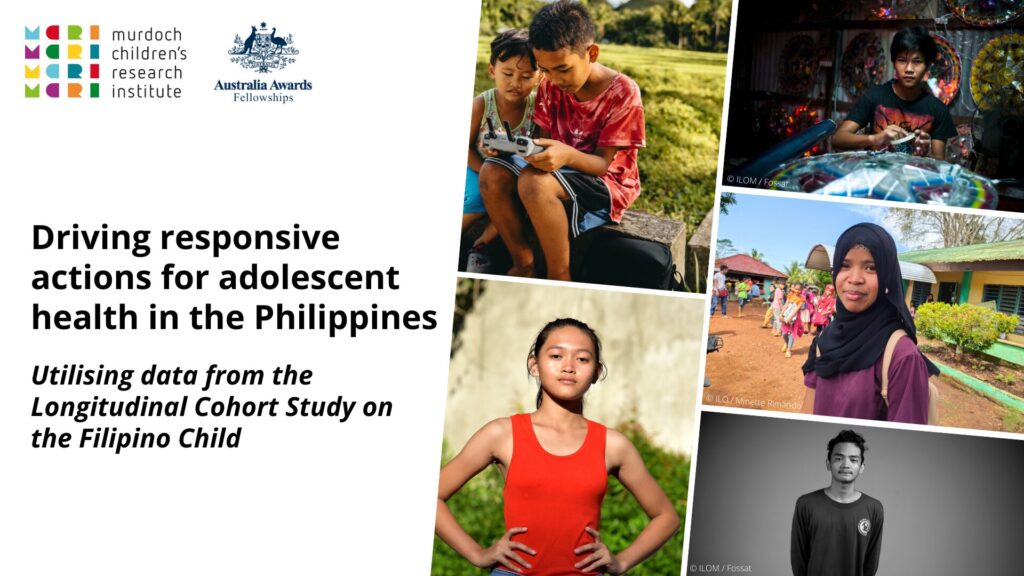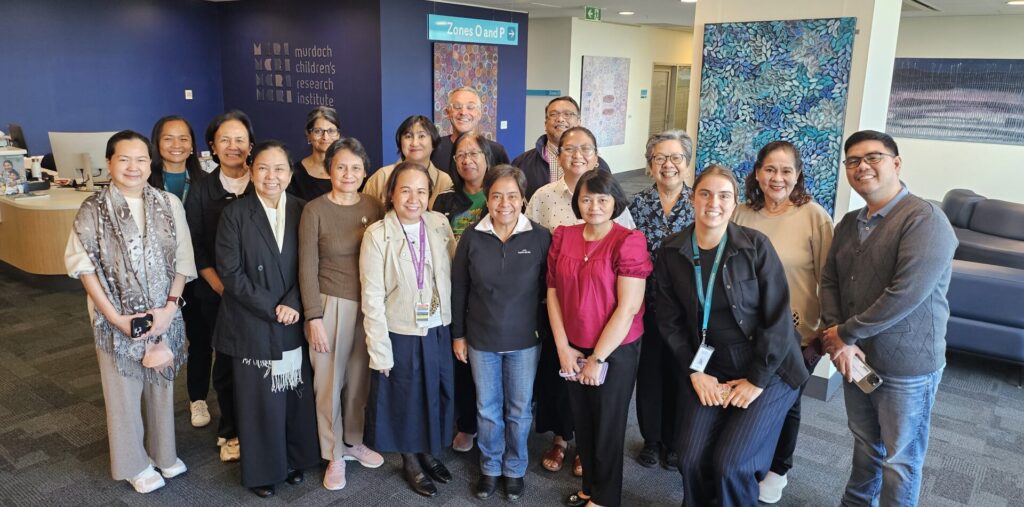Strengthening Adolescent Health Research and Policy in the Philippines: Australia Awards Fellowship
The Global Adolescent Health group from the Centre for Adolescent Health at the Murdoch Children’s Research Institute (MCRI) is honoured to be a recipient of the Department of Foreign Affairs and Trade (DFAT) Australia Awards Fellowship (round 19). This prestigious fellowship is a significant opportunity to strengthen partnerships and advance adolescent health policy and research in the Philippines.
About the DFAT Australia Awards Fellowship
The DFAT Australia Awards Fellowship aims to foster collaborative networks between Australian institutions and international partners. The program targets senior and mid-career professionals who can drive development outcomes in priority areas. Through short-term in-Australia training and professional development, the Fellowship supports institutional capacity-building in partner countries.

Fellowship Overview: Advancing the Use of Adolescent Health Data
This Fellowship is designed to support efforts to utilise the Longitudinal Cohort Study on the Filipino Child (LCSFC) to better inform policy in the Philippines. The LCSFC is an ongoing 14-year study (2016-2030) that tracks a nationally representative sample of Filipinos from age 10 through 24. Jointly supported by the Philippine Government, UNFPA, UNICEF and the Australian Government, the study is well positioned to inform efforts to advance adolescent health and evidence-based policy development. Through this 10-month Fellowship, 15 researchers will be mentored in data analysis and policy translation, ensuring that evidence from the LCSFC can drive impactful health policies and programs. Researchers at MCRI will also learn more about adolescent health in our region and how evidence can be best utilised across different settings.
Why This Matters
The Philippines has a large adolescent population, with 32 million young people aged 10-24 years. This group faces significant, complex, and preventable health challenges. In 2019 alone, 7.5 million years of healthy life were lost due to adolescent disease and injury. Addressing these challenges with strong, evidence-based policies represents a major opportunity for improving public health outcomes.
Fellowship Activities
Training and Capacity Building
The Fellowship will involve two seven-day visits to Melbourne for advanced training in longitudinal cohort analysis, supported by MCRI’s Clinical Epidemiology and Biostatistics Unit (CEBU) and LifeCourse initiatives. Fellows will also receive ongoing mentorship and support through online sessions. Training sessions will progressively build capacity, covering:
- Data analysis techniques for longitudinal cohort studies
- Interpretation of multi-level data for policy translation
- Effective communication of research findings to diverse audiences
Engagement in the Philippines
A five-day visit to the Philippines will enable engagement with youth advocates, policymakers, and senior personnel from the USC-Office of Population Studies Foundation (OPS). These interactions will ensure that young people’s perspectives inform policy development and that the research findings are effectively translated into actionable policy recommendations.
Expected Outcomes
Through this Fellowship, we aim to:
- Strengthen research collaborations.
- Enhance analytical capacity among Filipino researchers to conduct high-quality analyses of adolescent health data.
- Improve evidence-based advocacy by training fellows to communicate key findings to policymakers, youth advocates, and other stakeholders.
A Collaborative Partnership
This Fellowship marks the beginning of an exciting collaboration between MCRI and researchers in the Philippines. This fellowship also brings a focus to youth engagement, gender equality, and disability inclusion, aligning with DFAT’s international development priorities.
Looking Ahead
With the launch of Phase III of the LCSFC, there is a growing recognition of the need for greater dissemination of study findings. Thanh Le PSM, Development Counsellor at the Australian Embassy in the Philippines, highlighted the importance of using this data to inform policies that center around the needs of Filipino children, particularly girls. This Fellowship is a step forward in ensuring that research translates into real-world impact, supporting the health and wellbeing of adolescents in the Philippines.

